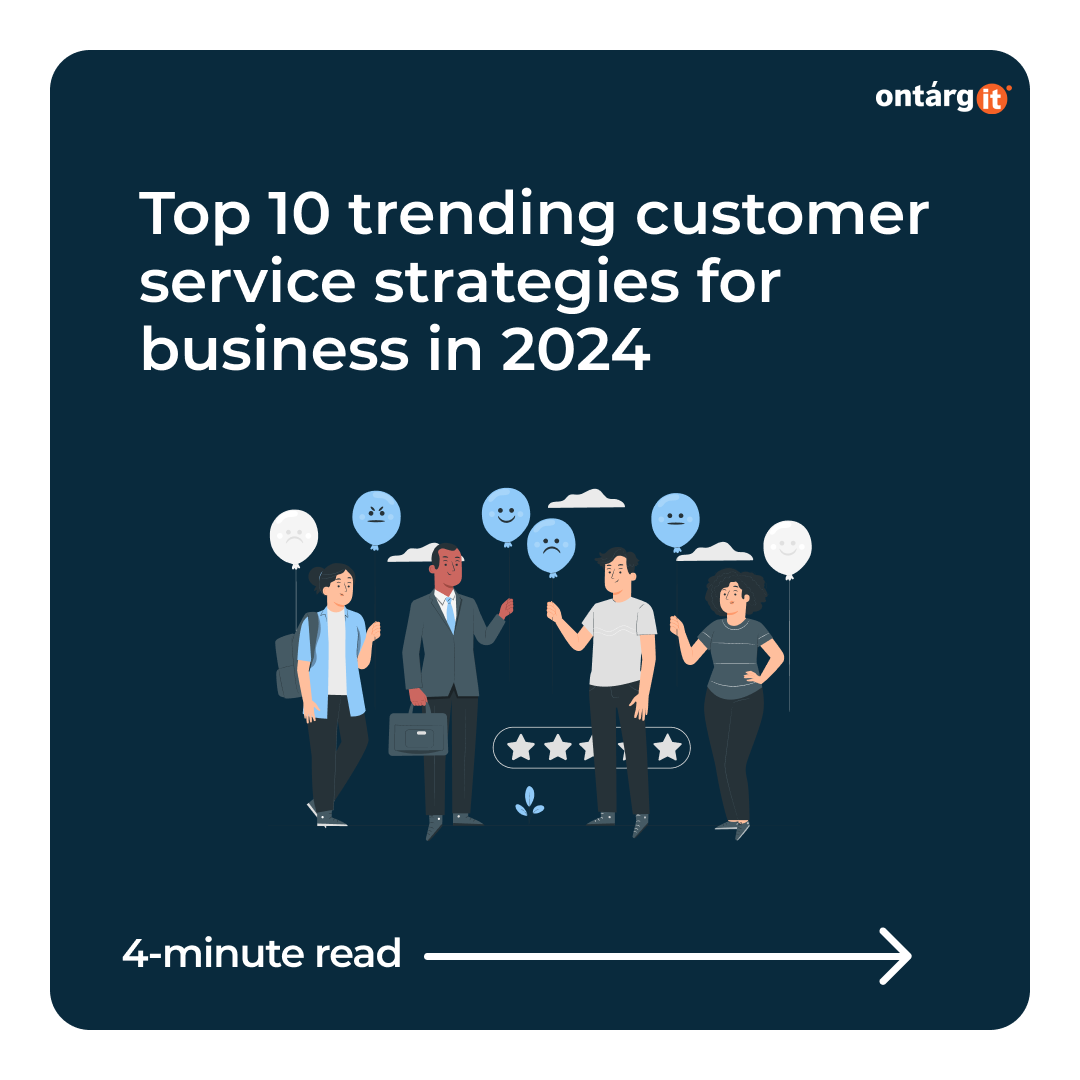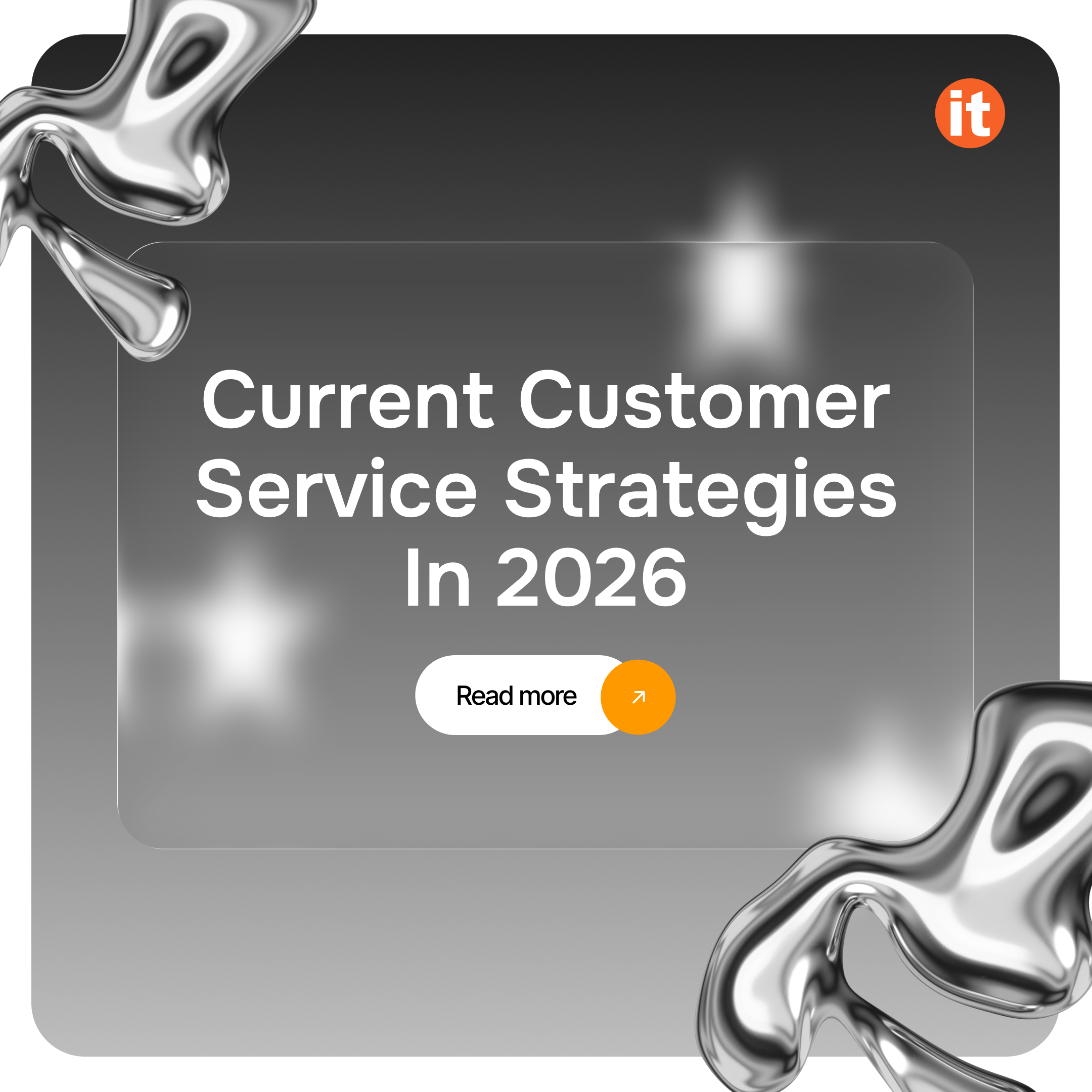Customer service is the backbone of any successful business. It’s not just about resolving issues; it’s about creating positive experiences that build customer loyalty and trust. This article will explore key customer service strategies and the critical role technology plays in enhancing the customer experience.
In today’s fast-paced digital world, customer expectations are higher than ever. They expect quick, efficient service on the platform of their choice —phone, email, text, or chat. To meet these demands, businesses must implement robust customer service strategies that are not only reactive but also proactive.
The Evolution of Customer Service: From Reactive to Proactive
In the past, customer service was reactive, meaning that businesses would wait for an issue to occur and then address it. However, modern customer service strategies are becoming increasingly proactive. They aim to predict and meet customer needs before they escalate into problems. This shift has been prompted by technological advancements and a deeper understanding of customer behavior. For instance, businesses can utilize customer service software like Dynamics 365 to gain insights into customer preferences and behaviors. This enables customer service strategies with personalized support that caters to individual needs.

Empathy: The Foundation of Customer Service Success
Empathy is a crucial aspect of good customer service. Customers want to feel like they are being heard and understood. When service agents genuinely care about the customer’s issue, it can greatly impact their overall experience. Training service agents to actively listen, respond with understanding, and offer solutions that take the customer’s emotions into account can turn a frustrating experience into a positive one.
Dynamics 365 Customer Service is an excellent tool for fostering empathy. It provides real-time insights into customer sentiment, enabling agents to tailor their responses accordingly. This ensures that each interaction is as supportive and personalized as possible, which is essential for building long-term customer relationships.
The Role of Communication in Customer Service Excellence
Effective communication is crucial for successful customer service. Clear and transparent communication helps in resolving issues quickly and efficiently, reducing frustration. Businesses must ensure that their service agents are equipped with the right tools and training to communicate effectively across all channels.
Platforms like Dynamics 365 Customer Insights enable businesses to gain a comprehensive view of the customer journey, allowing service agents to personalize interactions and anticipate needs. This customer service strategies not only resolves issues faster but also builds trust between the customer and the brand.
Integrating Technology to Enhance Customer Service Strategy
As customer expectations continue to evolve, so must the technologies that businesses use to meet these demands. Today, customers expect seamless service across multiple channels—whether they’re interacting with a brand via social media, email, or phone. To achieve this, businesses must integrate various customer service platforms and technologies into a cohesive system.
Microsoft Power Platform provides a set of tools that assist businesses in integrating and automating their customer service processes. For instance, Power Automate can link various communication channels to ensure consistent and efficient customer service strategies and interactions.
Questions related to customer service strategies
Balancing Automation with Personal Interaction
Automation is an essential component of modern customer service strategies, but it’s crucial to strike the right balance between automation and personal interaction. While automation can handle routine tasks and inquiries, human agents remain indispensable for resolving complex issues that demand empathy and personalized attention.
Microsoft Power Platform offer robust tools that empower businesses to automate routine processes while ensuring human agents are available to handle more intricate interactions. This approach enables companies to provide efficient service without compromising the indispensable personal touch that is so vital in customer service.
Building Customer Loyalty Through Effective Support
Customer loyalty is built on trust and consistent positive experiences. One of the best ways to foster loyalty is through effective customer service. When customers know they can rely on a brand to resolve their issues quickly and efficiently, they’re more likely to remain loyal to that brand.
Using Dynamics 365 Customer Service, businesses can enhance the support they offer, ensuring that service agents have the tools they need to provide exceptional service. Additionally, Dynamics 365 Customer Insights offers valuable data that can inform agent training and development, helping businesses build a team of skilled service agents who can meet customer needs effectively.
Leveraging AI and Analytics for Seamless Customer Service
Artificial Intelligence (AI) and analytics are transforming customer service by enabling businesses to predict customer needs and respond proactively. AI can analyze customer interactions in real time, providing agents with insights that help them deliver more personalized and effective service.
Platforms like Dynamics 365 Customer Service are at the forefront of this transformation with Copilot for Dynamics 365 and Copilot for Sales. With Copilot support, businesses can detect emerging trends, understand customer sentiment, and offer proactive solutions. This not only improves the efficiency of customer service but also enhances the overall customer experience.
Training and Development: Equipping Service Agents for Success
The success of any customer service strategy depends heavily on the skills and capabilities of the service agents. Continuous training and development are essential to ensure that agents are equipped to handle the evolving demands of customer service.
Businesses need to know how to identify gaps in agent knowledge and provide targeted training. This ensures that agents are well-prepared to meet customer needs, which leads to higher customer satisfaction and loyalty.
Customer Feedback: A Key to Continuous Improvement
Customer feedback is invaluable for improving customer service strategies. By regularly collecting and analyzing feedback, businesses can identify areas for improvement and make necessary adjustments to their service processes.
Tools like Dynamics 365 allow businesses to gather customer feedback efficiently and integrate it into their service strategies. This helps businesses stay responsive to customer needs and continually enhance their service offerings.
The Future of Customer Service: Embracing Change
The future of customer service lies in the effective integration of empathy, communication, technology, and automation. As customer expectations evolve, businesses must be prepared to adapt and innovate. By adopting strategies that prioritize these elements, businesses can not only meet the current needs of their customers but also build lasting relationships that drive long-term success.


















